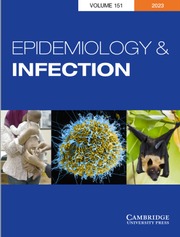No CrossRef data available.
Article contents
On Factors Limiting the Extent of the Concentration of Antitoxic Sera by the Fractional Precipitation Methods at present employed
Published online by Cambridge University Press: 15 May 2009
Extract
The following conclusions of practical value to those engaged in serum concentration can be drawn from the experimental work described above:
(1) An end product containing not more than 20% of protein and having a potency of 8 or 10 times that of the original can be obtained as a matter of routine where the pooled antidiphtheritic sera has a unitage not greater than 500, and where the heat denaturation is of the order of 40%.
(2) By the fractional precipitation methods at present employed for the concentration of antitoxic sera for therapeutic use the degree of concentration of high potency sera cannot be taken beyond the limit of about 22,500 units of antitoxin per gramme of protein in the end product.
- Type
- Research Article
- Information
- Copyright
- Copyright © Cambridge University Press 1917


